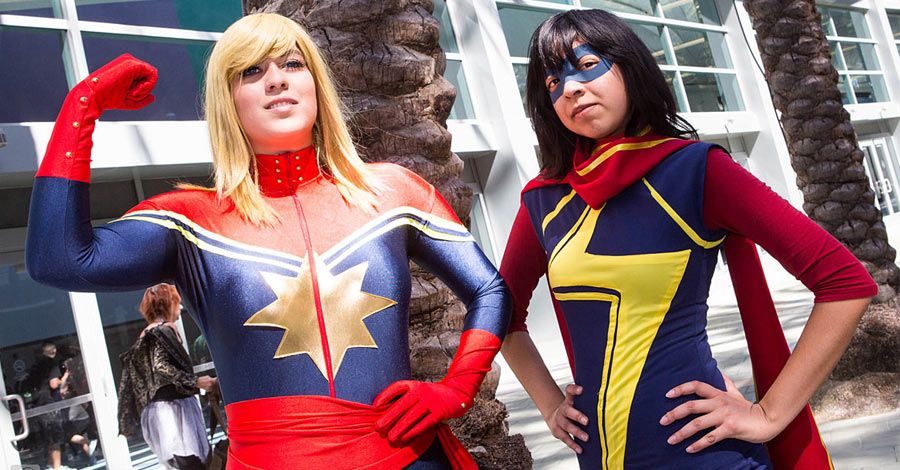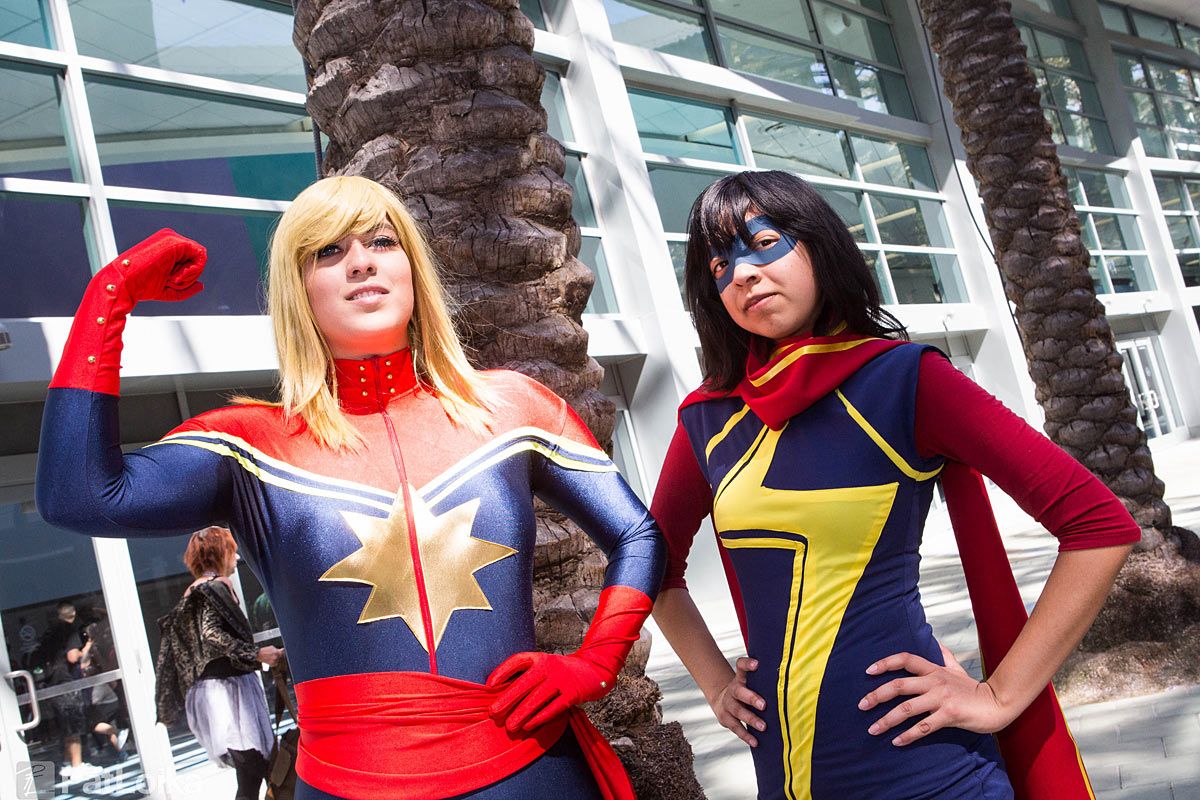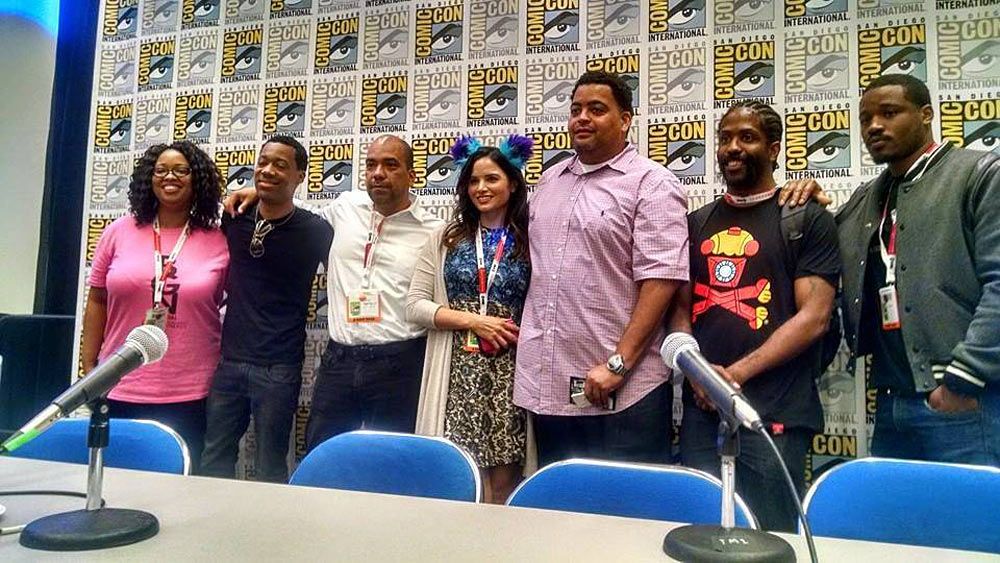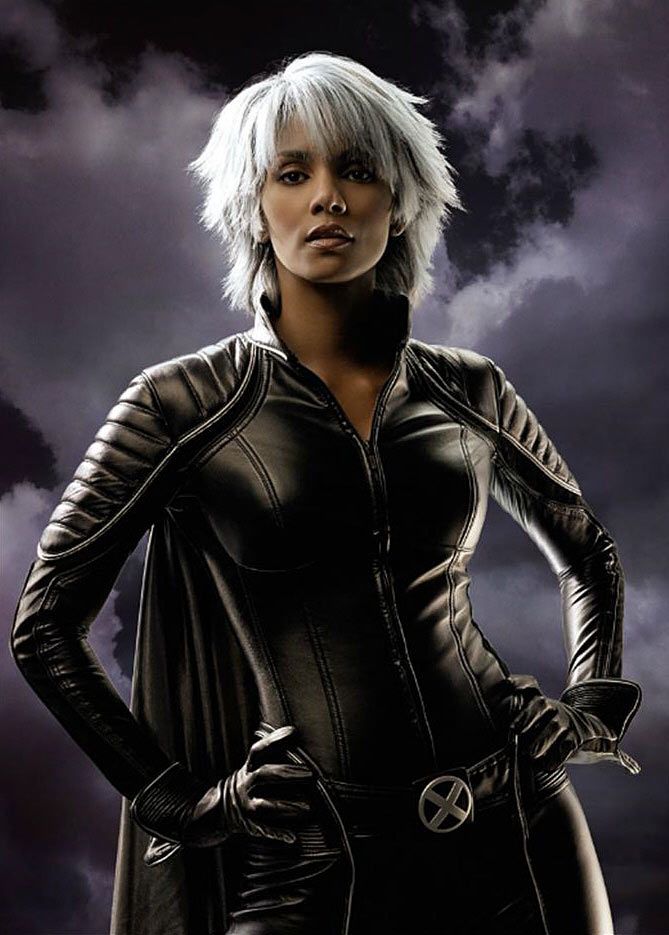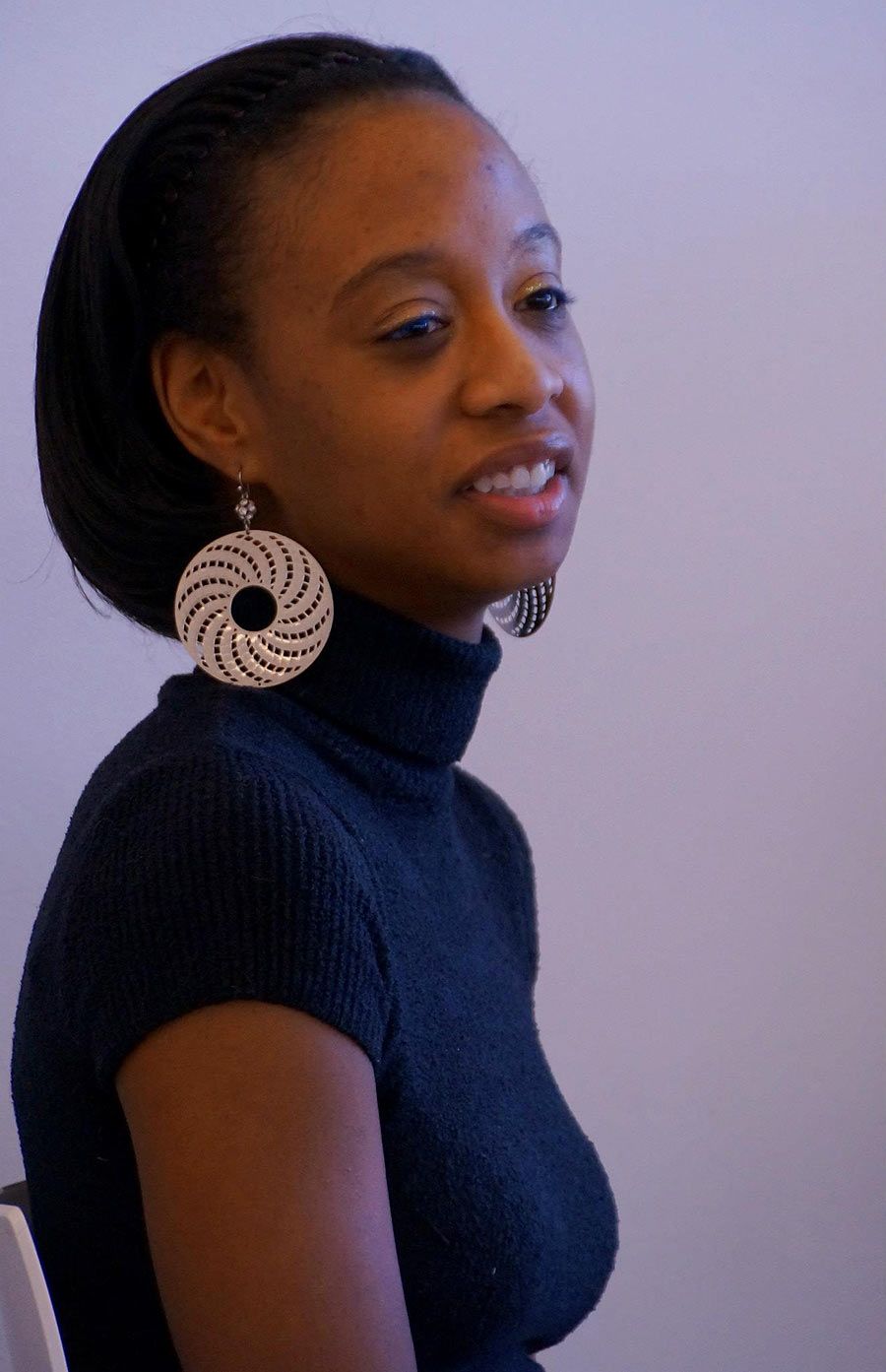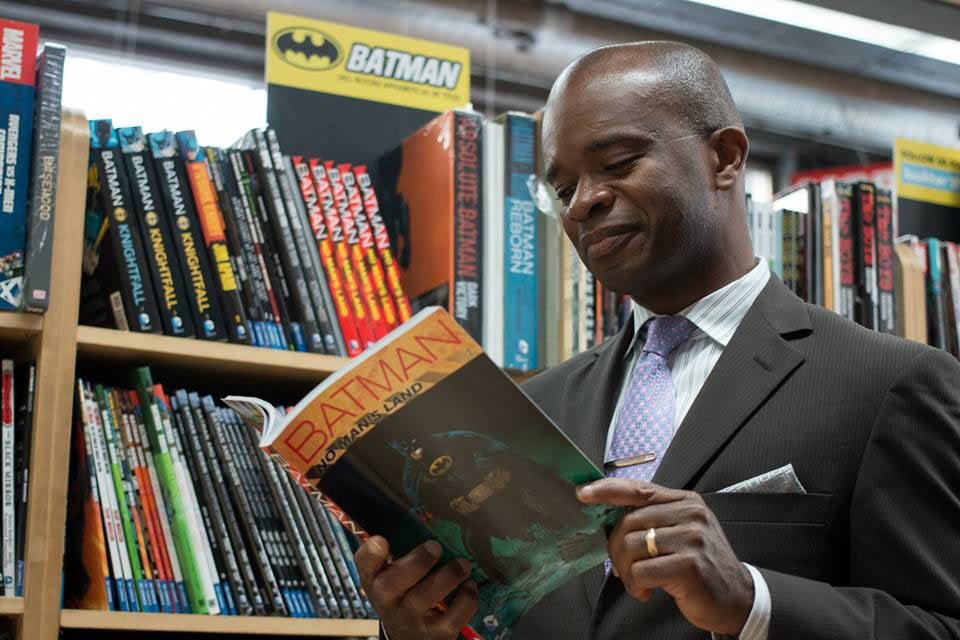On August 12, Yahoo News released a 17-minute video feature online called "Rise of the Female Superhero."
Featuring narration by Katie Couric, the Yahoo Global News Anchor and television news veteran, and produced by Brian Prowse-Gany, "Rise of the Female Superhero" was a beautiful and informative piece on the power of women in mainstream superhero comic books.
I watched it and admired the piece's positive qualities. Top-notch production value in terms of cinematography, color correction, directing, locations. It had an impressive line-up of creators and executives profiled, each of whom had great things to say.
- Amanda Conner
- G. Willow Wilson
- Gail Simone
- Meredith Finch
- Babs Tarr
- Tara Butters
- Kelly Sue DeConnick
- Kate Perkins
- Sana Amanat
- Michele Fazekas
- Marguerite Bennett
- Shelly Bond
- Hayley Atwell
- Jennifer Lawrence
- Melissa Benoist
Fifteen women.
Writers, illustrators, executives.
Actresses, television showrunners, producers.
Women who make up the spectrum of popularity in the comic book and superhero television show fields.
Possibly the most impressive collection of women in one video feature on comic books to date.
There were men in the piece on female superheroes, too.
- Grant Morrison
- Axel Alonso
- Jim Lee
- Dan Didio
"Rise of the Female Superhero" is quite likely the best piece on the subject of superhero women, their creators, and managers to date...
...and it didn't contain one Black woman.
Not one.
Not a real-life Black woman. Not a Black female superhero. Not a Black female cosplayer.
Not even a Black man, since men were invited to the party, as well.
The realization of that fact didn't hit me until I finished watching the piece. I had to watch it again to make sure I wasn't imagining the multi-layered exclusion of Black people from this high-profile piece on comic books in the year 2015.
After multiple viewings confirmed this to be true, I had to think about the reasoning behind such exclusion. Based on the various locations used in shoots for the piece, I concluded that it took place (in whole or part) in San Diego, CA during the high-profile entertainment event known as Comic-Con International: San Diego.
The event took place over four days in July. People from all over the world attended the convention, including celebrities.
I attended Comic-Con, so I know there were Black women present. Cosplayers, bloggers, creators, public speakers.
One of them was Jamie Broadnax, the creator of Black Girl Nerds, a trailblazer company with a major online presence, representing a nexus point for geeks, women and men, Black and otherwise.
The Black Girl Nerds Twitter Page has over 48,000 followers.
One of its followers is Shonda Rhimes.
Yes, that Shonda Rhimes. Creator and Executive Producer of the ABC Thursday Night primetime TV lineup of "Grey's Anatomy," "Scandal," and "How To Get Away With Murder."
Jamie was a speaker on the panel "We Are All Heroes: The Changing Landscape of Comics, Geekdom, and Fanboy Culture. Other panelists included actress Katrina Law from "Arrow" and "Creed" director Ryan Coogler.
Another Black woman who attended Comic-Con this year was Regine Sawyer, creator of the Women in Comics NYC Collective International, an organization founded in 2012 to expand awareness of the women of color in comics.
A creator, public speaker, and advocate for educational programs, Regine is one of the most visible Black women in comics from coast to coast.
Neither of them appeared on "Rise of the Female Superhero," which says to me that neither of them were invited.
Now, to be objective, one could say that "Rise of the Female Superhero" focused on Marvel and DC Comics, and by extension Disney and Warner Bros., and since neither Jamie nor Regine have direct involvement with any of those companies, it was exclusion by default.
One could also objectively say that since Storm, the most popular Black female superhero in the Marvel Universe, had her ongoing series announced as cancelled before Comic-Con, featuring Storm would not match the theme.
Both of the preceding points would be excuses, though.
The discussion about the growing number of female creators, characters, and executives in the comic book industry is directly connected to the discussion of diversity in comics.
Since the mainstream comic book industry has been dominated by heterosexual Caucasian men, anything other than that reflects diversity.
Diversity is inclusive of people from many backgrounds. A number of those backgrounds were included in "Rise of the Female Superhero" -- Asian, Latino, Pakistani.
So the exclusion of Black people, the second largest POC demographic in the United States, is irresponsible, to say the least.
Marvel's Storm, a character first published in the 1970s, has appeared in four high-profile superhero films, and will appear in the upcoming "X-Men: Apocalypse."
She has been portrayed by Halle Berry, a well-known actress, director and producer in the previous X-Men films.
Storm is known to a consumer base beyond the comic book fans.
The exclusion of Storm from a discussion of the rise of the female superhero is irresponsible, to say the least.
I could call the producer behind this piece lazy or ignorant.
I could call Katie Couric irresponsible, for her endorsement of a piece oon women in comics which does not feature any Black women in comics.
I could go for the easy assault and call this oversight a product of racism.
Let's avoid all of that and get down to the brass tacks of this.
Money and visibility.
"Rise of the Female Superhero," in addition to being a piece about people, heroism and art, is a piece about commerce. Marketability. The success of entertainment fare produced by Black people, or featuring Black people, does not seem to be enough to translate to the immediate viability of Black women in mainstream comic books.
But that's slowly changing.
The animated "Vixen" web series on the "CW Seed" is one example.
The growing relationship between Marvel Comics and illustrator/musician Afua Richardson is another.
The upcoming comic book series, "Niobe," created by actress Amandla Stenberg and illustrated by Ashley Woods is another.
More things are happening, and in the works, to increase the presence of Black women producing work of quality in the comic book industry. Those of us who believe their consistent inclusion is right and necessary for the evolution of the medium and industry have to support their efforts and product.
We have to know who they are. We have to buy their works of quality.
Those Black female creators who believe their consistent inclusion is right and necessary will have to be ruthless, in their capacity to create quality product and their use of resources to expand awareness of their work; expand awareness of themselves to the general audience.
This does not just apply to Black women.
I did not see any Asian women featured, even though writer Marjorie Liu wrote "Astonishing X-Men" and has a new series coming out from the publisher of "The Walking Dead."
I did not see any Latina characters featured, even though Marvel has profiled America Chavez in various articles as an example of diversity.
Hopefully, the next major news outlet that does a feature on women in comics and female superheroes will be inclusive of people and characters from a wider palette of cultures.
Until then, ruthlessness is required.
Joseph Phillip Illidge is a public speaker on the subjects of race, comics and the corporate politics of diversity. In addition to his coverage by CNN Money, the BBC and Publishers Weekly, Joseph has been a speaker at John Jay College of Criminal Justice, Digital Book World's forum, Digitize Your Career: Marketing and Editing 2.0, Skidmore College, Purdue University, on the panel "Diversity in Comics: Race, Ethnicity, Gender and Sexual Orientation in American Comic Books" and at the Soho Gallery for Digital Art in New York City.
Joseph is the Head Writer for Verge Entertainment, a production company co-founded with Shawn Martinbrough, artist for the graphic novel series "Thief of Thieves" by "The Walking Dead" creator Robert Kirkman and video game developer Milo Stone. Verge has developed an extensive library of intellectual properties for live-action and animated television and film, video games, graphic novels and web-based entertainment.
His graphic novel project, "The Ren," about the romance between a young musician from the South and a Harlem-born dancer in 1925, set against the backdrop of a crime war, will be published by First Second Books, a division of Macmillan.
Joseph's newest comic book project is the upcoming Scout Comics miniseries "Solarman," a revamp of a teenage superhero originally written by Stan Lee.

